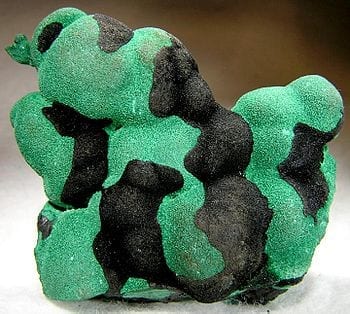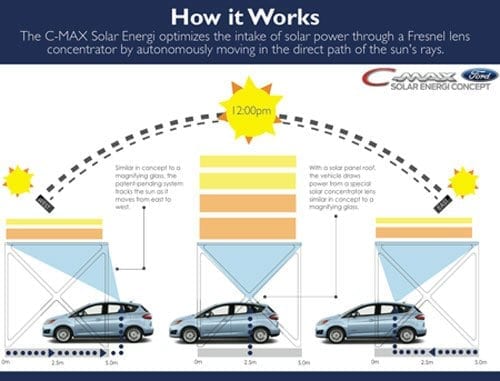
Starting right now, every microprocessor that Intel ships will be made entirely with conflict-free minerals.
Just six months into his role as CEO of Intel, Brian Krzanich announced today that the electronics giant hit a momentous goal in the world of corporate social responsibility: Starting right now, every microprocessor that Intel ships will be made entirely with conflict-free minerals.
Every piece of tantalum, tungsten, gold, and tin found in the microprocessors will come from smelters that only source minerals mined outside the quagmire of armed conflict and human rights abuse that plague parts of the Democratic Republic of Congo (DRC) and surrounding countries.
The world of electronics manufacturing is complex. Large companies like Intel buy minerals in bulk from suppliers, which in turn buy them from smelters around the world–and so the electronic companies often aren’t familiar with the origins of their minerals. For Krzanich, who previously led Intel’s supply chain and manufacturing efforts, improving supply chain transparency is part of a long-standing effort that culminated in today’s announcement at the Consumer Electronics Show in Las Vegas.
“I was managing all of Intel’s supply chain–not only factories, but everything we buy,” he told Co.Exist in an interview. “As a part of that, you are heavily involved and looked at as one of the leaders of Intel’s corporate social responsibility efforts. Factories tend to have large footprints in the communities we live in.”
That focus on corporate social responsibility led to an interest in conflict minerals about four years ago, when the electronics industry first started waking up to the issue (This was prior to the announcement of a rule mandated by the Dodd-Frank Wall Street Reform and Consumer Protection Act, which now requires U.S. companies to disclose the use of conflict minerals sourced from the DRC and surrounding countries).
Krzanich’s gut reaction was to just ditch sources from the DRC and nearby countries and rely instead on conflict-free regions. But the supply chain team quickly decided that wasn’t the right approach; it would eliminate a key source of income for local residents. Instead, Intel took the more difficult road, supporting conflict-free sources within the region. In 2012, the company committed to only manufacturing conflict-free microprocessors by the end of 2013.
When Intel first began looking into conflict minerals in its supply chain, the company immediately hit a wall–it didn’t yet know what the breadth of the conflict was or what its options were. The first year was spent “determining if we were supporting metals from conflict regions, particularly tantalum,” explains Carolyn Duran, the director of supply chain at Intel and program manager for its conflict mineral efforts. Intel is the largest commercial consumer of tantalum, and consequently has the most power to change the market.
Along with other electronics companies investigating conflict minerals in their supply chains, Intel concluded that it should focus its investigations specifically on smelters–a pinch point in the process.
The Latest on: Conflict-free minerals
[google_news title=”” keyword=”Conflict-free minerals” num_posts=”10″ blurb_length=”0″ show_thumb=”left”]
via Google News
The Latest on: Conflict-free minerals
- Congo questions Apple over knowledge of conflict minerals in its supply chainon April 25, 2024 at 9:30 am
Congo’s government is questioning Apple about the tech company’s knowledge of “blood minerals” from a conflict zone in the African country that could be smuggled into supply chains. It's demanding ...
- Apple again accused of using conflict materials in its supply chainon April 25, 2024 at 5:49 am
The Democratic Republic of Congo’s government notified Apple over concerns that the tech giant’s supply chain may be tainted by conflict minerals sourced from the central African nation, reports ...
- iPhones 'tainted with blood'? Congo accuses Apple of using ‘illegally exploited' minerals from war zoneson April 25, 2024 at 5:09 am
The Democratic Republic of Congo is accusing Apple of illegally sourcing conflict minerals, or ‘blood minerals’ like tin, tantalum, tungsten, and gold from war armed rebel groups in the DRC or ...
- DR Congo presses Apple over minerals supply chain, lawyers sayon April 25, 2024 at 4:46 am
Democratic Republic of Congo is pushing Apple Inc (NASDAQ: AAPL) for information about its supply chain over concerns it may be tainted with conflict minerals ...
- MINESPIDER AND STAR DIAMOND CORPORATION TO LAUNCH G7 COMPLIANT DIAMOND PASSPORTon April 25, 2024 at 4:08 am
SASKATOON, SK and BERLIN, /CNW/ - Star Diamond Corporation (TSX: DIAM) ("Star Diamond" or the "Company"), a Canadian corporation engaged in the exploration, acquisition and development of diamond ...
- DR Congo accuses Apple of using "blood minerals" in tech productson April 25, 2024 at 2:20 am
The Democratic Republic of Congo's government is accusing Apple of using "illegally exploited" minerals from the country's embattled east in its products.
- Congo questions Apple on concerns about use of conflict mineralson April 25, 2024 at 1:46 am
The Democratic Republic of Congo’s government notified Apple of concerns that the company’s supply chain may be tainted by conflict minerals sourced from the central African nation. A group of ...
- DR Congo Government Sends Notice to Apple Over 'Illegal Mineral Mining' | Oneindia Newson April 25, 2024 at 1:40 am
The Democratic Republic of Congo issues a formal notice to Apple concerning 'blood minerals' allegedly used in iPhones and other products. Learn more about the accusations and the urgent response ...
- DR Congo accuses Apple of using ‘illegally exploited’ minerals for its productson April 24, 2024 at 5:00 pm
The ITSCI programme is one of the main mechanisms set up over ten years ago to ensure the supply of “conflict-free” minerals in the DRC, according to the British NGO Global Witness. In April 2022, ...
- DRC accuses Apple of using minerals from “illegally exploited” Congolese mineson April 24, 2024 at 3:43 pm
The Democratic Republic of Congo (DRC) accuses the Apple group of using 'illegally exploited” minerals in its products which allegedly come 'from Congolese News ...
via Bing News









